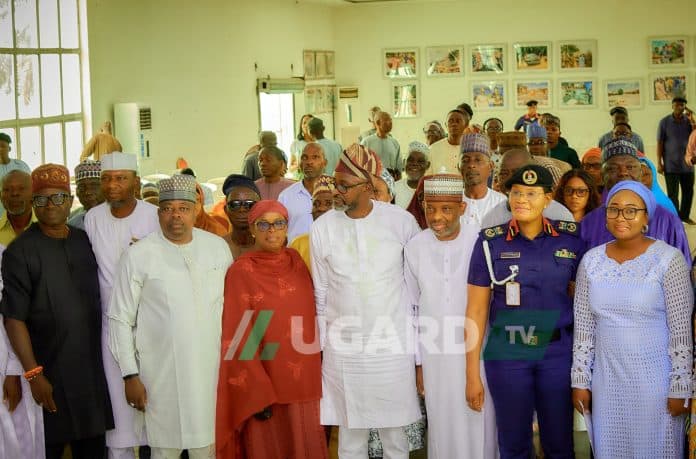The Kogi State Government has officially commenced the 2024/2025 Annual School Census as part of its strategic efforts to reform the education sector through data-driven planning and policy formulation.
Speaking at the Stakeholders Sensitization Meeting held on Thursday, Kogi State Governor, Ahmed Usman Ododo, represented by the Commissioner for Education, Hon. Wemi Jones underscored the administration’s commitment to investment education, building upon the legacy of the former Governor Alhaji Yahaya Bello.
READ ALSO, Governor Ododo’s Development Drive Across Kogi Central
Jones described the annual school census as a foundational tool that significantly influences development, particularly in education.
“Accurate data collection begins with a proper school census. “Effective planning is only possible through inclusive participation. If you’re not part of the planning stage, you won’t understand what’s happening, and that often leads to destructive criticism,” he said.
He revealed that in the past four years, the state government has consistently allocated 30% of its annual budget to the education sector, adding that the result is visible in the improvement in education infrastructure and school enrollment and consequential reduction in the number of out-school-children in the state.
He emphasized that one of the standout achievements includes the payment of over ₦1.3 billion to cover both internal and external examination fees for pupils and students across the state.
READ ALSO, Journalism in the Shadows of Truth: My Story
Jones issued a pointed warning to all stakeholders especially private school proprietors under the National Association of Proprietors of Private Schools (NAPPS), that any institution refusing to cooperate with enumerators or fails to complete the census forms will incur a ₦200,000 fine and potential closure of the affected school.
Also speaking at the event, the Special Adviser on Education to the Governor, Abdullahi Abdulmalik, commended the level of stakeholder participation, stressing that accurate and reliable data is crucial to identifying educational gaps and areas needing urgent intervention across Kogi’s 21 local government areas.
Director of Education, Research, Planning, and Statistics, Animoku Elizabeth, emphasized that the Ministry of Education has made available all necessary materials and equipment to ensure the credibility and efficiency of the data collection process.
She described the exercise as key to shaping effective educational policies and efficient allocation of resources.
In his remarks, Chairman of the State Universal Basic Education Board (SUBEB), Abdulrazaaq Mohammed, reaffirmed the importance of data in guiding strategic decisions and sustaining impactful interventions in the sector.




